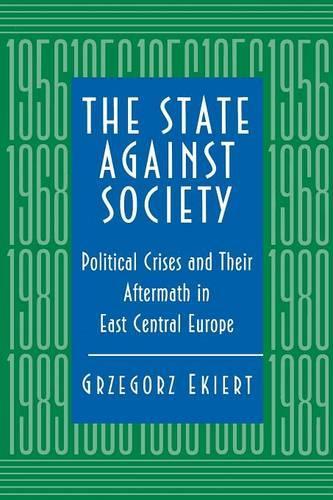
The State against Society: Political Crises and Their Aftermath in East Central Europe
(Paperback)
Publishing Details
The State against Society: Political Crises and Their Aftermath in East Central Europe
By (Author) Grzegorz Ekiert
Princeton University Press
Princeton University Press
2nd January 1997
United States
Classifications
Professional and Scholarly
Non Fiction
Left-of-centre democratic ideologies and movements
320.943
Physical Properties
Paperback
448
Width 197mm, Height 254mm
680g
Description
In a comparative analysis of the major political crises in post-1945 East Central Europe (Hungary 1956-63, Czechoslovakia 1968-76, Poland 1980-89), this text challenges the notion that state-socialist regimes are politically stable due to their pervasive institutional and ideological control over their citizens. The book maintains that the nature and consequences of these crises can better explain the distinctive experiences of East Central European countries under communist rule than can the formal characteristics of their political and economic systems or their politically-dependent status. The book explores how political crises reshaped party-state institutions, redefined relations between party and states institutions, altered the relationship between the state and various groups and organizations within society, and modified the political practices of these regimes. It shows how these events transformed cultural categories, produced collective memories, and imposed long-lasting constraints on mass political behaviour and the policy choices of ruling elites. These crises, it argues, shaped the political evolution of the region, produced important cross-national differences amon
Reviews
Winner of the 1996 Orbis Polish Book Prize, American Association for the Advancement of Slavic Studies
Author Bio
Grzegorz Ekiert is Associate Professor of Government at Harvard University.
